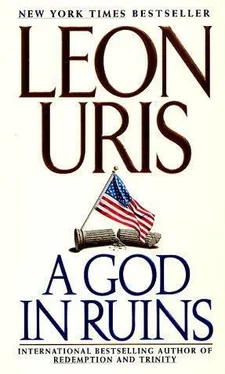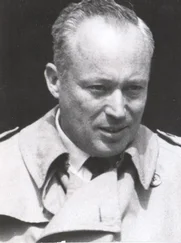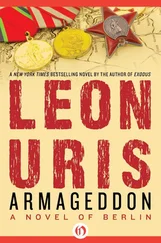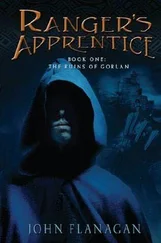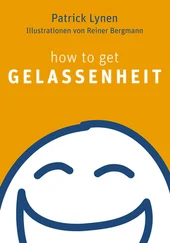In the deep of night, Jeremiah Duncan arrived with a single aide, a Marine gunner. The two-man team accounted for the commander, chief planner, bombardier, and emergency copilot.
When the President assumed his seat and nodded to Major General Duncan, the animus about the table was tempered by a reluctant respect for the old Marine. It was merely a year ago that the Joint Chiefs had pleaded with Duncan to remain in the service for just this sort of eventuality. But, and it was a big but, at this table Duncan could be a rogue.
Jeremiah’s long tenure served him well. He played his presentation, knowing the President had to give Iran a whack or terrorist activity would ooze all over the European continent.
“Gentlemen, as we know,” Duncan said, plunging right into his remarks, “we have received a break that happens once in a lifetime. A German frau has ratted on her lieutenant husband, an American rat, and the Israelis in Frankfurt had the terrorists fingered before they could get out of town. A Lear jet is missing. The Iranian government does not know what we know. We can nail them.”
“But a lightning strike without rehearsals leaves a big margin for error.”
“Moreover, Duncan, we don’t know enough about your SCARAB’s capabilities.”
“Moreover, Duncan, we are going to lose precious time getting the SCARAB to the East Coast along with your RAM team.”
“Gentlemen, Mr. President, I used my discretionary powers and commandeered a C-5 jet cargo plane from Long Beach, folded up the SCARAB, and put it aboard along with twenty some Marines of the RAM team. We are ready to go.”
Pencils as sharp as daggers, pressed on foolscap pads, now lightened up. Assistants behind their bosses exchanged quick whispers.
“Have I got it straight? You brought your attack team and your airplane with you?”
Yes, sir.
Now there came a sincere clearing of throats and rapt attention.
“Marine Gunner O’Connell here has worked up plans for four potential raid sites in Iran. A Teheran power grid, a dam, and an oil terminal. Yet they won’t work in this situation.”
“You said there were four.”
“I’m coming to that. We learned as we went on to eliminate any plan which would require months of intelligence and massive use of resources. It defeats the rock-bottom mission of a lightning surprise attack.”
Gunner O’Connell asked for the screen to be lowered and operated a slide carousel of maps, photographs, tactics, and stat sheets.
“The genesis of this attack is to hit them in the next fifteen or twenty hours, in the middle of the night. RAM will be on its way to Iran even as Washington wakes up yawning tomorrow. Around noon Washington time, the Defense Department will report an American Lear jet is missing. A flash in the sky was seen. Some of our ships in the area are investigating. Gentlemen.” Dogbreath said, “I shit you not when I tell you the Iranians will still be squatting over their holes with their pants down.”
“What is your target, General Duncan?” the President asked.
Quinn clicked on a map of Iran. “Here,” Jeremiah said, pointing, “in
the dead center of the country between the Great Salt Desert and the Persian Gulf. As you know, it is a wild, bitter, mountainous region. Quinn?”
Click, click.
“This is the area around Mount Shir. It stands at around twelve thousand feet and is commanded by an overlook fortress. The fort is a couple centuries old, of mud brick, but from it the military is able to control an enormous, sparsely populated area. For generations Fort Urbakkan commanded the area, collected taxes from peasants and herders, decapitated smugglers, and exhorted tolls from caravans. It also contains prison cells for sabbath buggering. The garrison consists of about two hundred troops with a major in command. Since the ayatollahs have gained power, the fort has been used to detain high-ranking members from the shah’s regime while the ayatollahs decide their fate.”
“Who do they have there now?”
Duncan nodded to Charlie Bethune, the CIA chief.
“General Duncan contacted us as he flew out of California. We gave him the data we had on Fort Urbakkan. At present it is holding Bandar Barakat.”
Bandar Barakat! The name resounded off the walls of the Situation Room.
“Jesus Christ!”
“Barakat!”
“Charlie?” the President asked.
“If you can figure Bandar Barakat out, then you can figure out the Middle East. He was one of the top intelligence people under the shah. He smelled the ayatollahs taking power and turned double agent. Because of his Western intelligence contacts, he could still deliver information to the new regime. On our side of the equation, we thought we had buried a valuable mole in the new government. This source of Western intelligence would dry up if they whack off Barakat’s head. So, they imprisoned him and moved him up to Fort Urbakkan, where the VIP prisoner or prisoners are housed in a specific tower.”
The room hummed in admiration at the preciseness of the CIA data.
“Go on, Charlie,” the President said.
“Barakat is probably making like Scheherazade, giving just enough new information to remain alive.”
“What do we want this bastard for?” Admiral Clearfield, chief of Naval Operations, inquired.
“Good question,” Bethune answered. “Barakat had worked his way in Iran
to becoming chief coordinator for terrorist activities. Moreover, the
ayatollahs aren’t going to get rid of him until they find the money
he’s skimmed from the Saudis, who are financing a major part of his
operation. In our hands, Barakat can give us the names of terrorists,
their aliases, cells, organizations, training sites, bank accounts,
future targets being planned—“
“Do you mean to say,” Air Force Commander Hoyt interrupted, “you intend to take him out of this fort?”
“Precisely,” Jeremiah Duncan said.
“How do you know he’ll cooperate?”
“Read my lips .. . MONEY.”
Drawn smiles.
“Believe it or not,” Bethune said, “he still has friends in Western intelligence. That cautiously includes the CIA.”
“How does that figure?”
“He has more money sitting and waiting in the States than in Iran. It includes a prime building on Fifth Avenue. With the ayatollahs breathing down his neck, Barakat has to figure they’ll find and extort his fortune in Iran and Europe. On the other hand, we feel that he’s picked us as the winner and wants to run for it. One more thing, Barakat is an Arab. The Iranians don’t trust Arabs.”
“Are we all on the same page?” the President asked.
“With reservations,” General Bellicek, chair of the Joint Chiefs, noted. “Always with reservations.”
“And you think you can snatch Barakat?” the President asked Jeremiah Duncan.
“I sure as hell like the odds. If he is killed, the raid is still a success. If we spirit him out, we’ve won the lottery.”
“How do you envision this?”
/”~\ “
Quinn.
Click, click.
“Here, we’ve an extended map that includes the NATO base at Tikkah on the Turkish border next to Armenia. We take the SCARAB out of the C-5, unfold the wings and blades, arm it with bombs and missiles we’ve designed, fuel it, and go.”
“Hold it a minute, Jeremiah. Are you suggesting we are going to avoid Iranian radar?” Hoyt of the Air Force asked.
“Yes, in two ways. We’re going to take a page from the Israeli attack on the Egyptians in the Sixty-seven War. The Israelis flew out to the Mediterranean away from Egyptian radar, then came in and attacked them from the rear. We will go back door ourselves. The SCARAB will follow the coast of the Caspian Sea and enter Iran at the Turkoman border.”
Читать дальше
